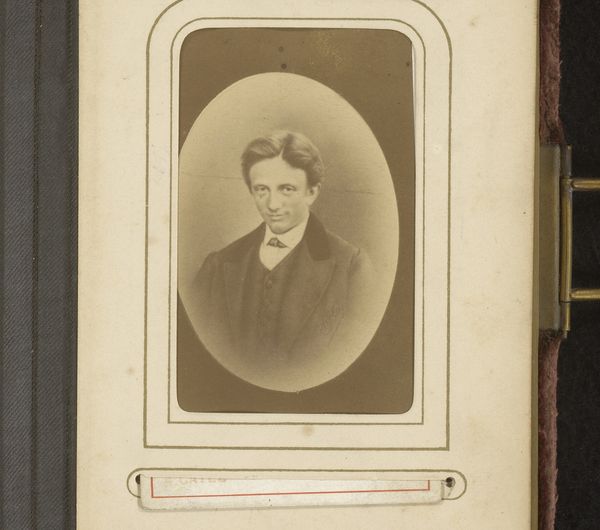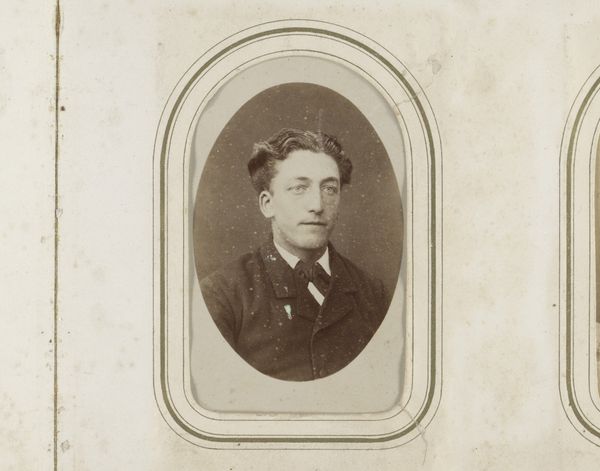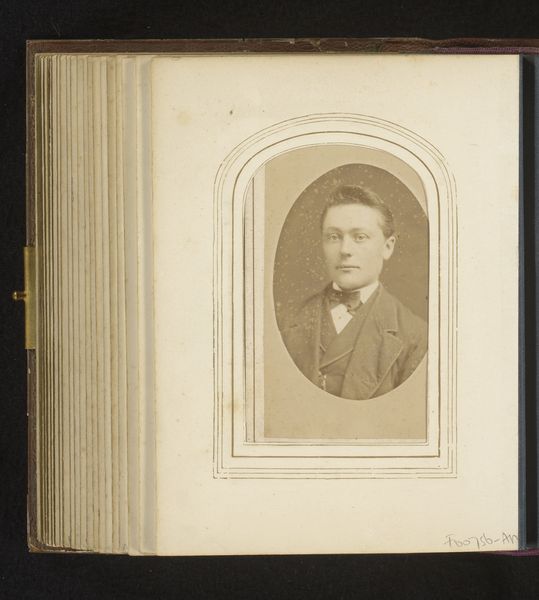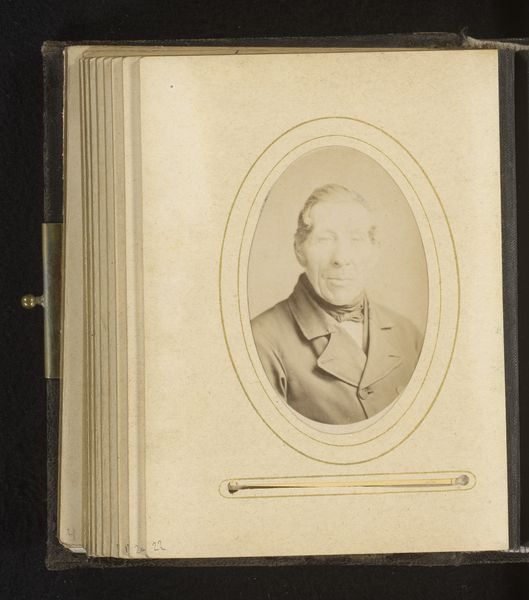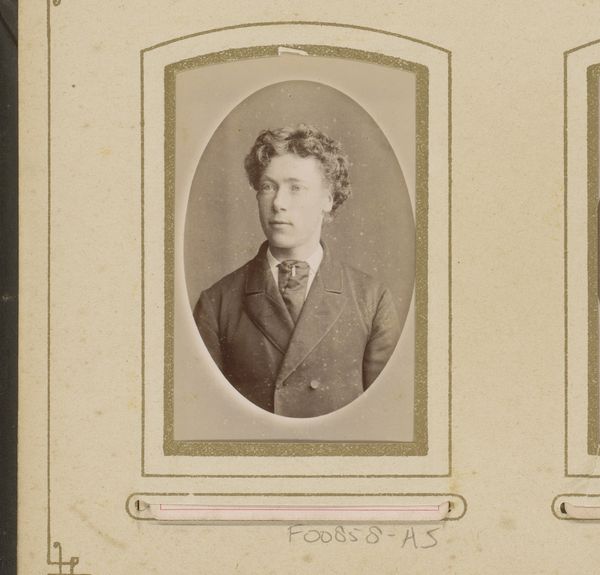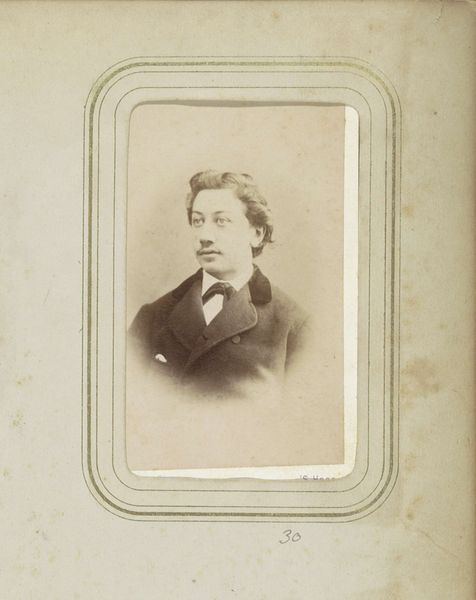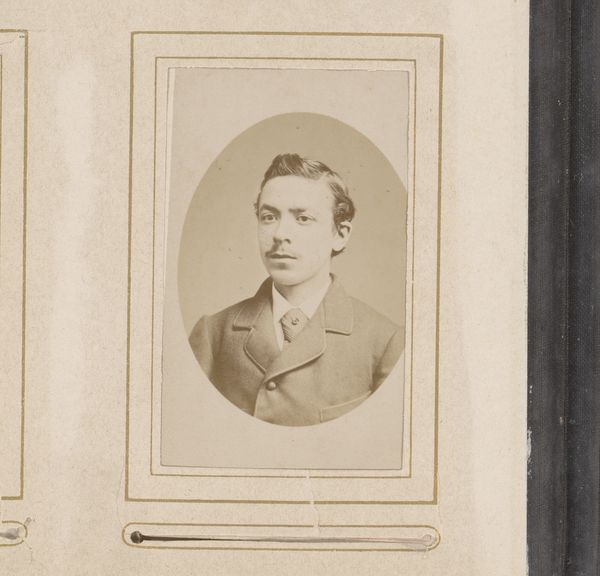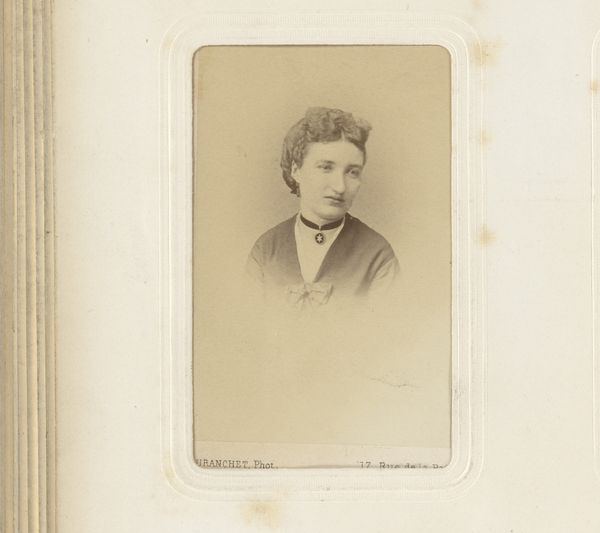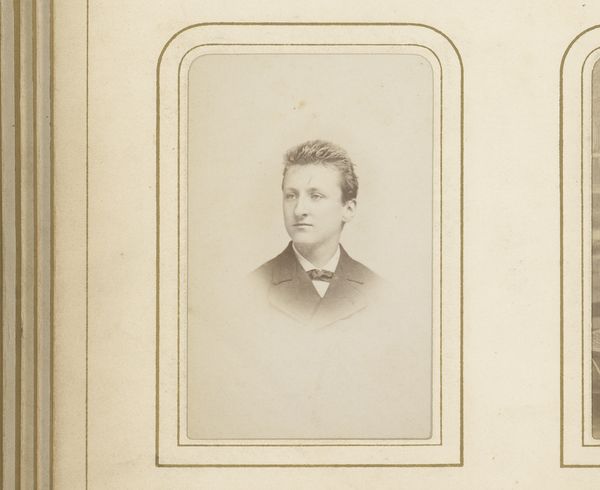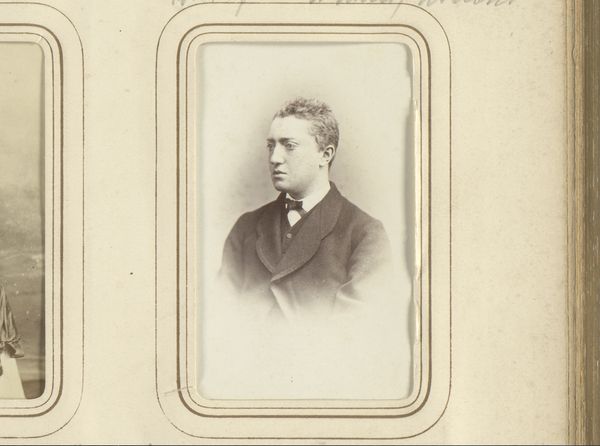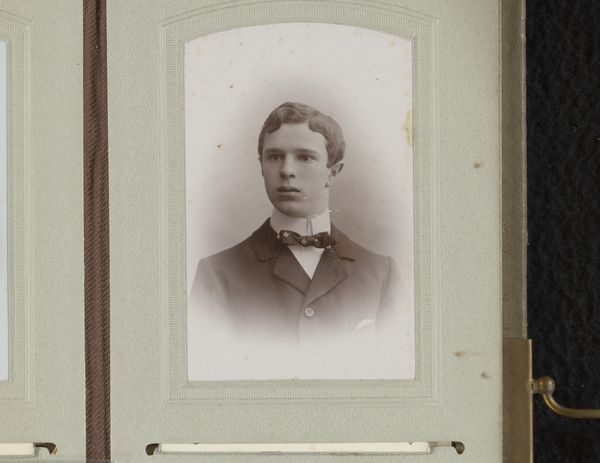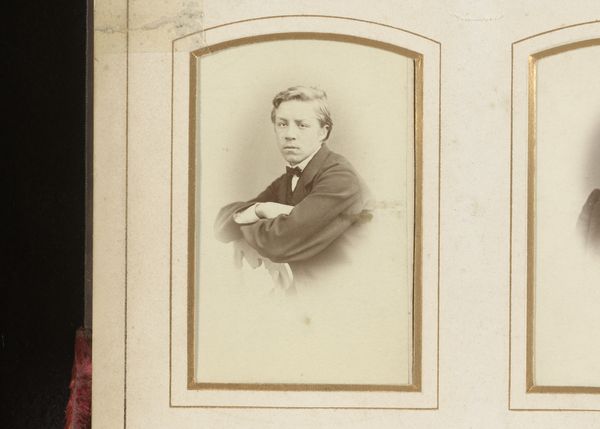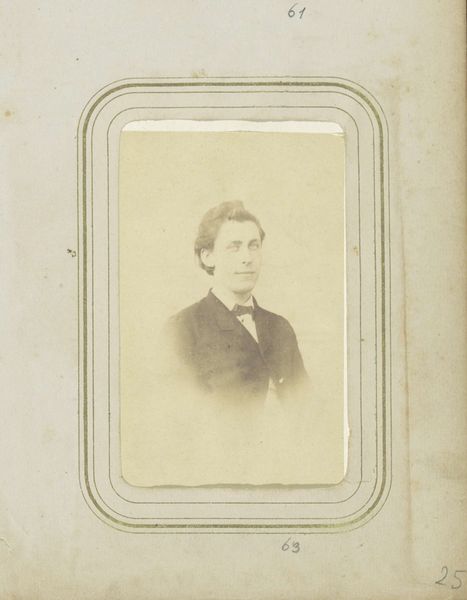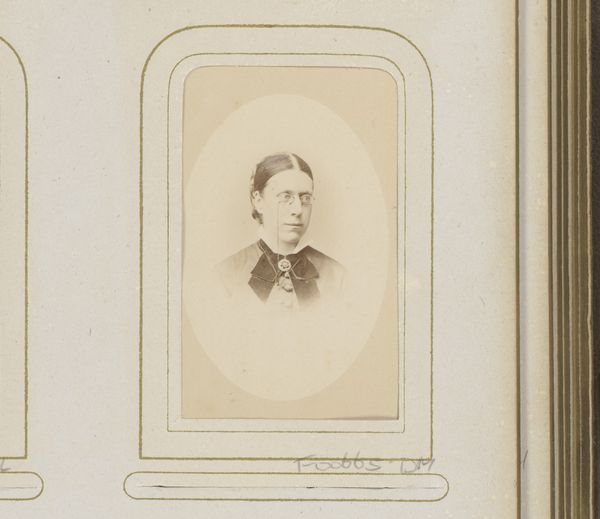
photography
#
portrait
#
photography
#
genre-painting
Dimensions: height 86 mm, width 53 mm
Copyright: Rijks Museum: Open Domain
Editor: This is an albumen print portrait titled "Portret van een man," created between 1860 and 1900 by Roelof Hinderikus Christiaan Karsses. The sepia tones create such a pensive mood. How would you interpret the aesthetic choices made by the artist? Curator: Let's consider the composition first. Notice the oval frame within the rectangular mount; this juxtaposition of geometric forms draws the eye inward. Furthermore, examine the tonality: the subtle gradations of light and shadow give volume to the man's face, but the lack of sharp contrast flattens the image somewhat. This flattening contributes to the overall mood you identified. Editor: I see what you mean about the flatness emphasizing the contemplative feel. So, do you think that was Karsses’ intent? Curator: Whether intentional or circumstantial, the effect remains. This era saw photography rapidly evolving, still greatly influenced by painting conventions. Observe how the framing and subject placement mimic painted portraits. The artist likely sought to grant photography a similar sense of dignity and permanence. The careful arrangement and restrained tones elevate this humble photograph. Editor: I hadn't considered the influence of painting so directly, it is fascinating how that interplay changes my view of the work. Curator: Indeed. We often forget that innovations in art build on, or even react against, existing conventions. Seeing the underlying structure reveals new depths. Editor: Thanks! It’s interesting to observe the framing, the tones, and painting influences. All these give such depth to my appreciation of this man's portrait. Curator: And remember, the artwork is often less about *what* it depicts and more about *how* it's depicted, as you consider other works of art in the gallery today.
Comments
No comments
Be the first to comment and join the conversation on the ultimate creative platform.
